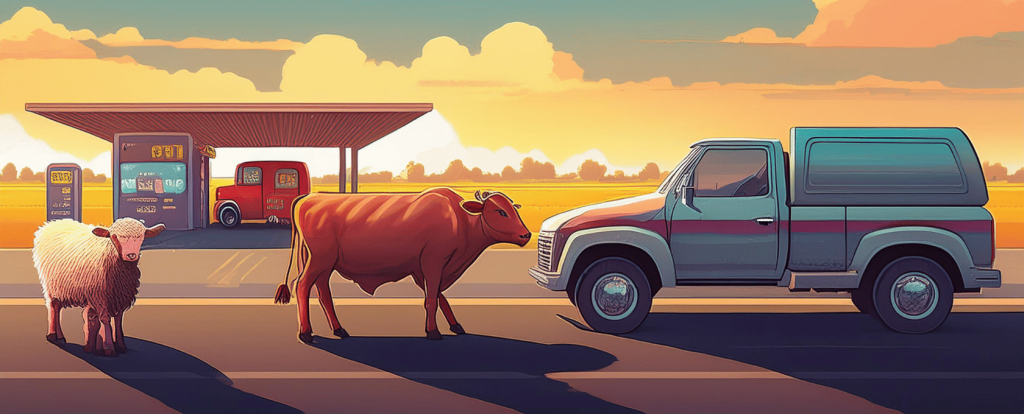THE POWER OF PETROL AND MEAT IN CYPRUS

The economy of Cyprus has been fluctuating since the opening of checkpoints in 2003, with the north and south influencing each other.
Although there have been fluctuations in the way both communities shop from each other, this pattern remains constant for two products.
“Petrol” and “meat”. Turkish Cypriots flock to butchers and markets in the south to buy beef and lamb, while Greek Cypriots form long queues at petrol stations in the north.
Economics has become much more influential than politics and civil society organisations. While we have not been able to boost the number of participants in bi-communal events for the past 20 years, we can clearly observe an increase in shopping-oriented travel.
While we see an ultra-nationalist in a market in the south, we can also witness a priest buying petrol in the north.
We started to see those who say, “I do not travel in my country by presenting an identity card” buying medicines from pharmacies, or petrol at petrol stations.
We have learnt not to be surprised anymore when we see those who say, “I will not give a penny to Greek Cypriots” in the supermarkets in the south.
Shopping for meat and petrol has naturally triggered other activities. Greek Cypriots coming to the north used to fill the markets and restaurants until the last months, while the opposite has been happening in recent days, and now Turkish Cypriots have started to visit the supermarkets and restaurants in the south more frequently.
While the fluctuation of the Turkish Lira against foreign currency affects the course of shopping in general, petrol and meat continue to constitute the main reason for crossings.
After 2020, the northern market had become so attractive for Greek Cypriots that bills for kebabs could be paid in metal coins. Now, exorbitant surges in food prices have reduced the attractiveness of restaurants.
There was such a difference in medicine prices that we witnessed the opening of many pharmacies close to the checkpoints. There was a tendency to employ Greek-speaking staff in pharmacies, or pharmacists were enrolled in Greek courses.
Today, supermarkets and butchers in the south near the checkpoints attract so many customers that they employ Turkish-speaking staff.
While the economy is finding its own way, the increasing cost of living these days has shifted the focus to the south. We can clearly see the heightened interest in the south, especially for many food products.
The statement of the Supermarkets’ Association that “we are cheaper than the south when it comes to cleaning products” is the declaration that we are more expensive when it comes to other products. This fear of the supermarket owners shows that business is not going well, and that both Greek Cypriot customers are fleeing and customers who can cross to the south are declining. The fact that we bump into more acquaintances in a supermarket in the south than in a supermarket in the north is an indication of this.
Following the butchers, supermarkets and restaurants, we can summarise the current situation by noting the increase in the number of people choosing to holiday in Limassol and Paphos hotels this summer, which has intensified considerably compared to the past.
The fact that we have reached a period when the Ministry of Finance pays public employees by borrowing money is just one reflection of the flight of economic activity to the south. The fact that the Ministry of Finance, which increases its revenues by collecting tax in advance on imported products, does not collect enough to pay salaries is a harbinger of bad news. I hope this will be taken into consideration and a step will be taken to tackle the high cost of living.